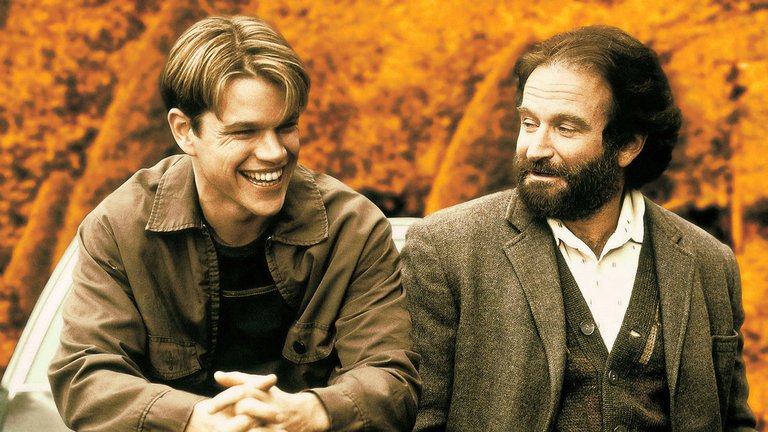In a press interview with the Portuguese writer Sarmago, he asked about the intention behind his writing in dedicating his latest work to his wife, a sentence: “To Pilar, who did not leave me to die.” Sarmago replied that Pilar was the only one who believed in him and did not leave him to die, so she gave him life. Sarmago's life story in the past is full of sorrow. For which he was awarded the Nobel Prize and the prestigious financial award.
From the opening shot of the 1997 film, we learn about Will Hunting (Matt Damon), drowning in his books in a shabby, untidy room, sitting in a chair and reading quickly. And his brilliant idea: He succeeds in solving a difficult mathematical problem that eluded the students.
When Professor John Nash said in the movie Beautiful Mind that lectures destroy the mind and waste time, his words were primarily for the young Will. In this time when ordinary students were studying in class, he and the most genius were mopping the floor outside, that's how life isn't always given opportunities, and Robin Williams in one scene sums it up when Lowell says, "It's not your fault."
Will's supremacy prompts brilliant professor Jerry Lambeau (Stellan Skarsgård) to search for him and save him from detention and imprisonment and secures his conditional release by agreeing to visit a therapist. Originally from the same poor neighborhood and social background, he succeeds in taming Will, and the taming later moves to cooperation and then friendship.
The focus of the film, then, is a meeting between a twenty-year-old prodigy and a psychotherapist going through a midlife crisis, but the matter is not only a successful script written by Ben Affleck and Matt Damon, who won the Oscars, but also a philosophical orientation built by the German existential philosopher Martin Buber, who focused On the nature of human encounters, considering dialogue as a form of human existence and not just a means of communication, and this is a film about what it takes from Popper’s perspective to be free from binding fears and to take the first difficult step that leads to the depths of awareness and removes the blindness from the eyes.
Am I you?
It is difficult to assess the method of treatment that Sean used to treat Will, not because it did not take long sessions and also because it did not exceed eight sessions, and from a professional point of view, Shawn violated many of the ethical rules that would have led to the withdrawal of his testimony if he had not been in a Hollywood movie, he assaulted Physically on the patient in the first session because he insulted his dead wife and his weak point, as well as regularly divulging information about Professor Lumbo's treatment sessions.
Sean's treatment method is completely unusual. The second session is in a garden, he finishes the fifth session ahead of time and puts pressure on his patient and frustrates him, as he talks freely about his private life and exchanges roles from a therapist to a patient looking for treatment. Similar Circumstances, although it is not clear which approach Sean is taking, his style can be dropped in the manner of Martin Buber, in fact the film is a good way to approach the existential approach that Buber calls "I am You". So even though Sean's treatment is unprofessional and Matt could have used it to get rid of him like other therapists, instead he felt for the first time that he had been taken seriously by someone for the first time.
Posted using CineTV







